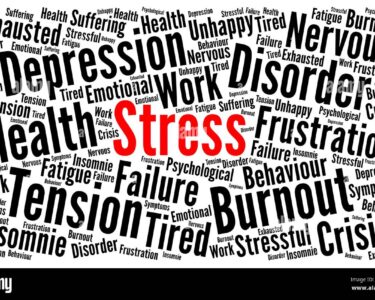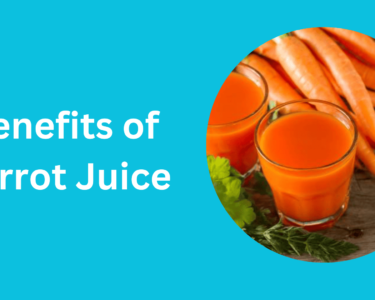Unveiling the Link Between Diet and Mental Well-being
In our fast-paced modern world, the significance of mental well-being cannot be emphasized enough. As individuals, we strive for happiness, balance, and peace of mind. While there are various factors that can influence our mental health, one aspect that is often overlooked is the link between diet and mental well-being. The food we consume can have a profound impact on our mood, emotions, and overall mental state. In this article, we will delve into the connection between what we eat and how it affects our mental health.
Table of Contents
- Introduction
- The Gut-Brain Connection
- Nutrients that Boost Mental Health
- Omega-3 Fatty Acids: The Brain’s Ally
- Antioxidants: Guarding Against Oxidative Stress
- Vitamin D: The Sunshine Vitamin and Mood Regulator
- B Vitamins: Nourishing the Nervous System
- The Influence of Sugar and Processed Foods on Mental Health
- The Impact of Gut Health on Mental Well-being
- The Mediterranean Diet: A Recipe for Good Mental Health
- The Role of Probiotics in Mood Regulation
- Hydration and Its Effects on Mood and Cognition
- Mindful Eating: A Path to Emotional Balance
- The Psychological Effects of Skipping Meals
- Food Allergies and Intolerances and Their Connection to Mood Disorders
- Intermittent Fasting: Mental Clarity and Focus
- Plant-Based Diets and Mental Health
- The Link Between Caffeine and Anxiety
- Conclusion
Introduction
The field of nutritional psychiatry is a growing area of research that focuses on the impact of diet on mental health. It is now widely acknowledged that what we eat can significantly influence our brain function and mental well-being.
The Gut-Brain Connection

The gut-brain axis plays a crucial role in the bidirectional communication between the gut and the brain. The gut houses trillions of bacteria known as the gut microbiota, which play a vital role in digestion and nutrient absorption. Additionally, these microbes produce neurotransmitters that affect our mood and emotions.
Nutrients that Boost Mental Health
Omega-3 Fatty Acids: The Brain’s Ally
Omega-3 fatty acids, commonly found in fatty fish like salmon and flaxseeds, are essential for brain health. They have been linked to reduced symptoms of depression and anxiety.
Antioxidants: Guarding Against Oxidative Stress
Antioxidants, present in colorful fruits and vegetables, protect the brain from oxidative stress and inflammation, promoting better mental health.
Vitamin D: The Sunshine Vitamin and Mood Regulator
Vitamin D, obtained from sunlight and fortified foods, plays a crucial role in regulating mood and preventing depression.
read more about The Role of Vitamin D in Boosting the Immune System
B Vitamins: Nourishing the Nervous System
B vitamins, particularly B6, B9 (folate), and B12, are essential for the proper functioning of the nervous system and have been associated with a reduced risk of mood disorders.
The Influence of Sugar and Processed Foods on Mental Health
Diets high in refined sugars and processed foods have been linked to an increased risk of depression and anxiety. These foods can lead to blood sugar spikes and crashes, affecting mood and energy levels.
The Impact of Gut Health on Mental Well-being
A healthy gut is essential for mental well-being. Imbalances in the gut microbiota can lead to various mental health issues, such as depression and stress.
The Mediterranean Diet: A Recipe for Good Mental Health

The Mediterranean diet, rich in fruits, vegetables, whole grains, fish, and olive oil, has been associated with a lower risk of depression and cognitive decline.
The Role of Probiotics in Mood Regulation
Probiotics, found in fermented foods like yogurt and kimchi, can positively influence mood and reduce symptoms of anxiety and depression.
Hydration and Its Effects on Mood and Cognition

Even a slight state of dehydration can have an impact on both mood and cognitive function. Ensuring proper hydration is vital for preserving optimal mental well-being.
Mindful Eating: A Path to Emotional Balance

Mindful eating practices can help individuals develop a healthier relationship with food and improve their emotional well-being.
The Psychological Effects of Skipping Meals
Skipping meals can lead to irritability, mood swings, and difficulty concentrating due to fluctuating blood sugar levels.
Food Allergies and Intolerances and Their Connection to Mood Disorders

Undiagnosed food allergies and intolerances can contribute to mood disorders, and identifying and eliminating trigger foods can lead to improvements in mental health.
Intermittent Fasting: Mental Clarity and Focus

Intermittent fasting has been shown to enhance brain function, promote mental clarity, and improve focus.
Plant-Based Diets and Mental Health

Plant-based diets, when well-balanced, can provide all the necessary nutrients for good mental health and have been linked to reduced symptoms of depression.
The Link Between Caffeine and Anxiety

While moderate caffeine intake can boost alertness, excessive consumption may exacerbate anxiety symptoms in susceptible individuals.
Conclusion
In conclusion, the link between diet and mental well-being is undeniable. Consuming a diet rich in nutrients that support brain health and nurturing a healthy gut can significantly impact our mood, emotions, and overall mental state. By making mindful choices about the foods we eat, we can take proactive steps towards improving our mental well-being.
FAQs
- Can diet really affect my mood and emotions?
- Absolutely! The food you eat can influence neurotransmitter production and affect your mood.
- Is the Mediterranean diet suitable for everyone’s mental health?
- The Mediterranean diet has shown benefits for many individuals, but individual responses to diets may vary.
- What steps can I take to enhance my gut health and promote better mental well-being?
- Consuming probiotic-rich foods and a fiber-rich diet can promote a healthy gut.
- Can intermittent fasting lead to negative effects on mental health?
- Intermittent fasting can have positive effects on mental clarity, but it may not be suitable for everyone. Consulting a healthcare professional is recommended.
- Can caffeine worsen anxiety?
- For some people, excessive caffeine consumption can exacerbate anxiety symptoms. Monitoring caffeine intake is essential for those sensitive to its effects.









 Viesearch - The Human-curated Search Engine
Viesearch - The Human-curated Search Engine

2 Comments